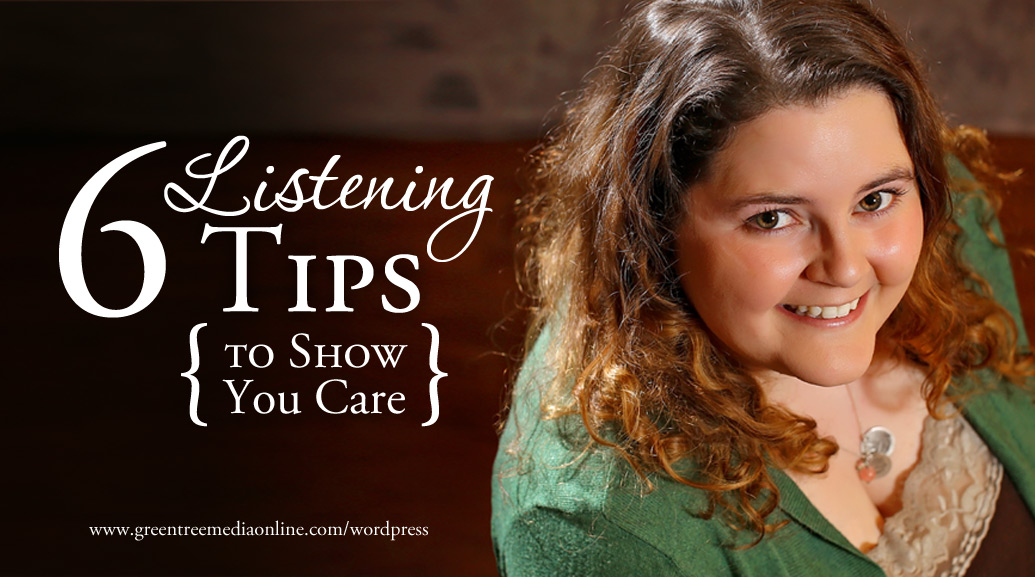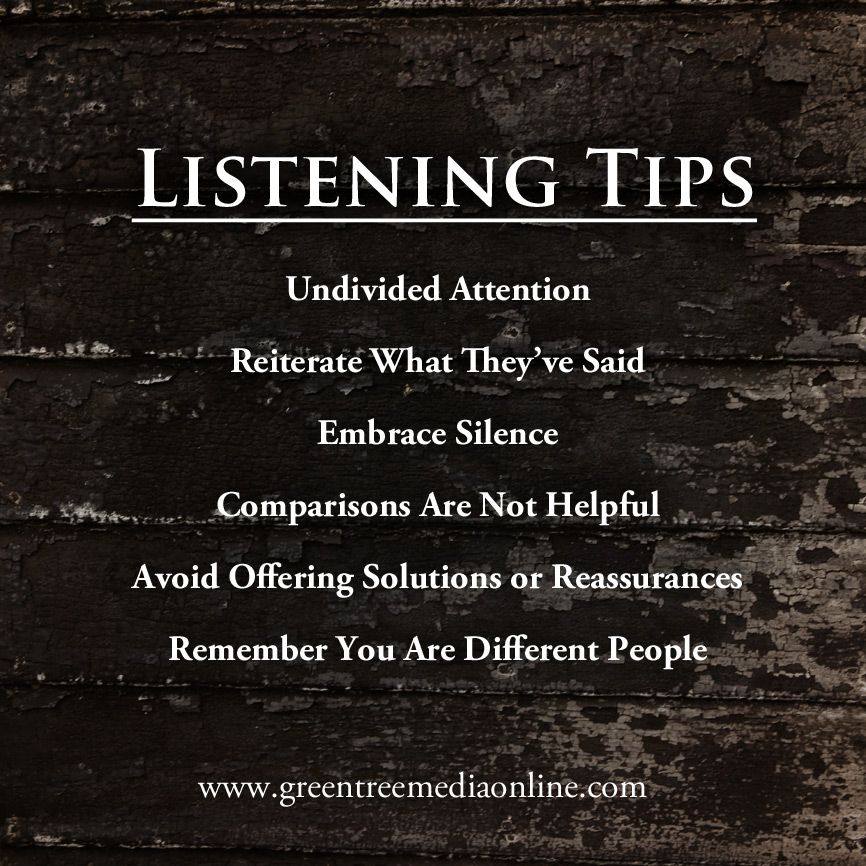Six Listening Tips to Show You Care

This past Sunday at church, one of our pastors brought up a topic that is very near and dear to my heart. If you’ve been following my journal for a while, you will know that I am no stranger to mental health. In fact I have a huge passion for it, and I try to constantly educate myself and improve my ability to help others. I think it’s important to be supportive of all our friends regardless of what their specific struggles. And I believe one of the best ways we can be supportive is through how we listen to each other. In our world today it is so easy to be distracted and self-focused. But in order to be a truly good friend – we need to learn to develop strong listening skills to support those we love… So here are just a few simple things you can do that go a long way in showing your friend that you care.
Undivided Attention
I feel like this should go without saying but if your friend is really struggling with something and wanting to open up to you about it, the best thing you can do is give him/her your full attention. Put down the phone, turn off the TV, stop whatever you’re doing and pay complete attention to him/her. Even if you’re talking to this friend over the phone, do not multi-task. Sit down somewhere quiet and really allow him/her to be the only thing you are focused on. Your friend will definitely be able to tell the difference and he/she will be more likely to really open up.
Reiterate What They’ve Said
This may sound ridiculous but it actually does help a lot! In fact, this is something they teach you in crisis intervention training. So let me give you an example.
Here’s your friend Tina… “I’m going to the hospital tomorrow for some tests. I think they suspect I have a blockage in my fallopian tubes, but no one has told me what kind of tests they’re going to do. I’ve read somethings online about it, but I have no idea what to expect or what it will be like.”
So to let her know you are listening and have a grasp on her feelings – you might say something like “It sounds like you’re feeling very nervous about these tests and what they might do.” What you’ve done is let Tina know you hear her and you are trying to understand what she’s feeling. This helps her feel heard and validates her feelings by hearing it coming from you. Even if you guess wrong she’ll most likely correct you and share more… like “well, no. I’m not so much nervous as I am frustrated and a little angry that they aren’t telling me what’s going on.” You give her the opportunity to share more because you are showing you care about how she feels and that you want to understand.
Embrace Silence
I feel this is another common problem with people today… we, as a society, are so fearful of silence. There are a number of people in my life who just cannot handle sitting quietly together. That void needs to be filled and so they fill it with their own voice. The minute you do this – you are removing the opportunity for your friend to talk. If you want to be a supportive listener, it’s important to start embracing healthy silence.
Comparisons Are Not Helpful
I’m sure I’ve covered this in other posts too, but comparing really isn’t helpful… ever. Your six month struggle to have kids does not compare to my six year struggle to have kids. My six year struggle to have children does not compare to a mother losing her son to cancer. And no two people going through the same struggles will experience it the same way… Our experiences are unique to each of us and we experience them differently. If you always compare something your friend shares to something in your own life – I can promise you – you are not being helpful or supportive of that friend.
It’s okay to admit that you don’t know what this feels like – because honestly – you don’t. I can’t imagine what it feels like to have a child, anymore than my fertile friends can imagine what it’s like to month after month fail to have a child. I can’t relate to why people drink to get drunk… because my body rejects alcohol so I’ve never experienced that. But I also have friends who can’t understand what depression or anxiety feels like. We are all uniquely and wonderfully made…. we need to embrace those differences.
Avoid Offering Solutions or Reassurances
I find this is one of the most frequent mistake people make. Personally, I think we often have this “Savior Complex.” We are so eager to be the one to solve our friends’ (or strangers’) problems that we start offering up solutions before they’ve even had time to process their current feelings. People need time to feel the anger or grief associated with their own struggle. And by offering up solutions, you are brushing aside their current pain and invalidating how they feel. Someone once told me “When they (a struggling friend) are ready for solutions, they will start presenting them or at the very least ask for help finding them.” So don’t rush the process by trying to fix things too quickly.
It is also important to avoid offering empty platitudes. We want so deeply for our friends not to struggle or suffer and so we are quick to offer encouragements. “This too shall pass.” “It can only get better from here.” “Tomorrow is a new day and things will look brighter.” But this serves only to brush aside their feelings and deny the strength of those feelings. I can give a very real experience from my own life on this topic actually…
This past year I’ve had to attend a couple different events that were very difficult for me. And it was very interesting for me to observe that there were two different ways people approached me about the situation and to see how each of them made me feel. One group would pause, grab my hand, ask me if I was okay and tell me that this must be very hard for me. The other group would tell me that my time was coming, and someday it will be my turn. One group offered reassurances, while the other acknowledged my pain. And I can tell you that the people who acknowledged my pain were the ones I appreciated the most – because they lived with me in that moment of heartache. The ones who offered reassurance made me feel that my feelings were invalid, which made the difficult situation harder. My point is this – your friend needs to know that what he/she is feeling is real… and in this moment, those reassurances feel empty and hollow to them. Focus on the now because that’s where they are and where they need you.
Remember You Are Different People
We sometimes have this tendency to assume everyone else thinks like we do. Psychologists refer to this as plural inference. It’s when we project our own thoughts, beliefs and realities onto someone else. Just because I’m a Christian doesn’t mean that I should assume my friend is too. Or if they are Christian – they may not believe precisely what I believe.
Here too it’s important to remember that our upbringings – the world that shaped us – can dramatically shift our perspective and way of processing things. For example, my husband is the kind of guy who usually processes things suddenly and quickly like in a loud, explosive yell when something isn’t working right. But then he’s immediately over it after that exclamation. I, however, tend to sit and dwell with the frustration, looking at it from every angle trying to understand. We approach our world differently, and so to be supportive of one another we need to acknowledge these differences.

So there they are! My six tips for being a supportive friend and better listener. Hopefully there is something in there you can take away. I know some of these are pretty straight forward, but a few might be new to you. If you take nothing of significance away from this, I hope you’ll remember this… We are, each of us, our own unique people and process the world in our own way. The best way to support your friend is through quiet, attentive listening – acknowledging their feelings in this moment as real and valid and strong. And as always, open minds and hearts bridge the gaps in our differences.
 Previous post
St. Teresa 2016 Graduation
Previous post
St. Teresa 2016 Graduation
 Next post
St. Teresa 2016 Girls Track Team
Next post
St. Teresa 2016 Girls Track Team

1 comment
Incredibly insightful and profound thoughts and words, and I both related and learned from reading them. Thank you for all you do, and I think after reading this I will make an effort to embrace and allow silence to be exactly what it is… silence. Hugs!